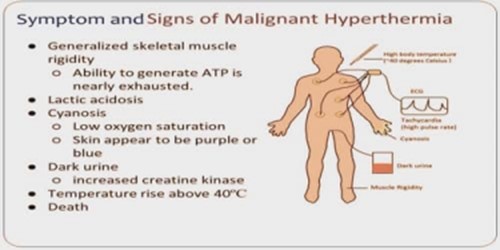Aminophylline is prescribed for a client with acute bronchitis. A nurse administers the medication, knowing that the primary action of this medication is to:
Relax smooth muscles of the bronchial airway.
Prevent Infection.
Suppress the cough.
Promote Expectoration.
The Correct Answer is A
Aminophylline is a bronchodilator that belongs to the xanthine derivative class of medications. It works by relaxing the smooth muscles surrounding the bronchial airways, which leads to bronchodilation. By dilating the airways, aminophylline helps to relieve bronchospasm, improve airflow, and facilitate easier breathing.
Prevent Infection: Aminophylline is not an antimicrobial medication, and its primary action is not related to preventing or treating infections.
Suppress the cough: While aminophylline may have some antitussive (cough-suppressing) effects, its primary action is bronchodilation rather than directly suppressing the cough reflex. Promote Expectoration: Aminophylline is not primarily indicated for promoting expectoration (bringing up mucus). It mainly focuses on bronchodilation to improve airflow and relieve bronchospasm.
Nursing Test Bank
Naxlex Comprehensive Predictor Exams
Related Questions
Correct Answer is ["A","C","D","F"]
Explanation
Muscle rigidity is a hallmark sign of malignant hyperthermia. It commonly affects the muscles of the jaw and upper chest.
Malignant hyperthermia can lead to rapid and shallow breathing, resulting in tachypnea. Malignant hyperthermia is characterized by a significant increase in body temperature, often exceeding 38.8°C (101.8°F).
Malignant hyperthermia can cause irregular heart rhythms or dysrhythmias, including tachycardia or arrhythmias.
The manifestations of hypertension and skin mottling are not typically associated with malignant hyperthermia. Hypertension (high blood pressure) is more commonly seen in conditions such as hypertensive emergencies or certain cardiovascular disorders. Skin mottling, which refers to irregular or patchy skin coloration, is not a specific manifestation of malignant hyperthermia.

Correct Answer is D
Explanation
To calculate the patient's body mass index (BMI), we need to divide the weight (in kilograms) by the square of the height (in meters). Let's convert the height and weight measurements to the appropriate units and perform the calculation:
Height: 5 feet, 6 inches = 5 + (6/12) = 5.5 feet = 1.6764 meters (rounded to four decimal places) Weight: 250 lb. = 113.3 kg
BMI = Weight (kg) / (Height (m))^2
BMI = 113.3 kg / (1.6764 m)^2
BMI ≈ 40.0
Whether you are a student looking to ace your exams or a practicing nurse seeking to enhance your expertise , our nursing education contents will empower you with the confidence and competence to make a difference in the lives of patients and become a respected leader in the healthcare field.
Visit Naxlex, invest in your future and unlock endless possibilities with our unparalleled nursing education contents today
Report Wrong Answer on the Current Question
Do you disagree with the answer? If yes, what is your expected answer? Explain.
Kindly be descriptive with the issue you are facing.
